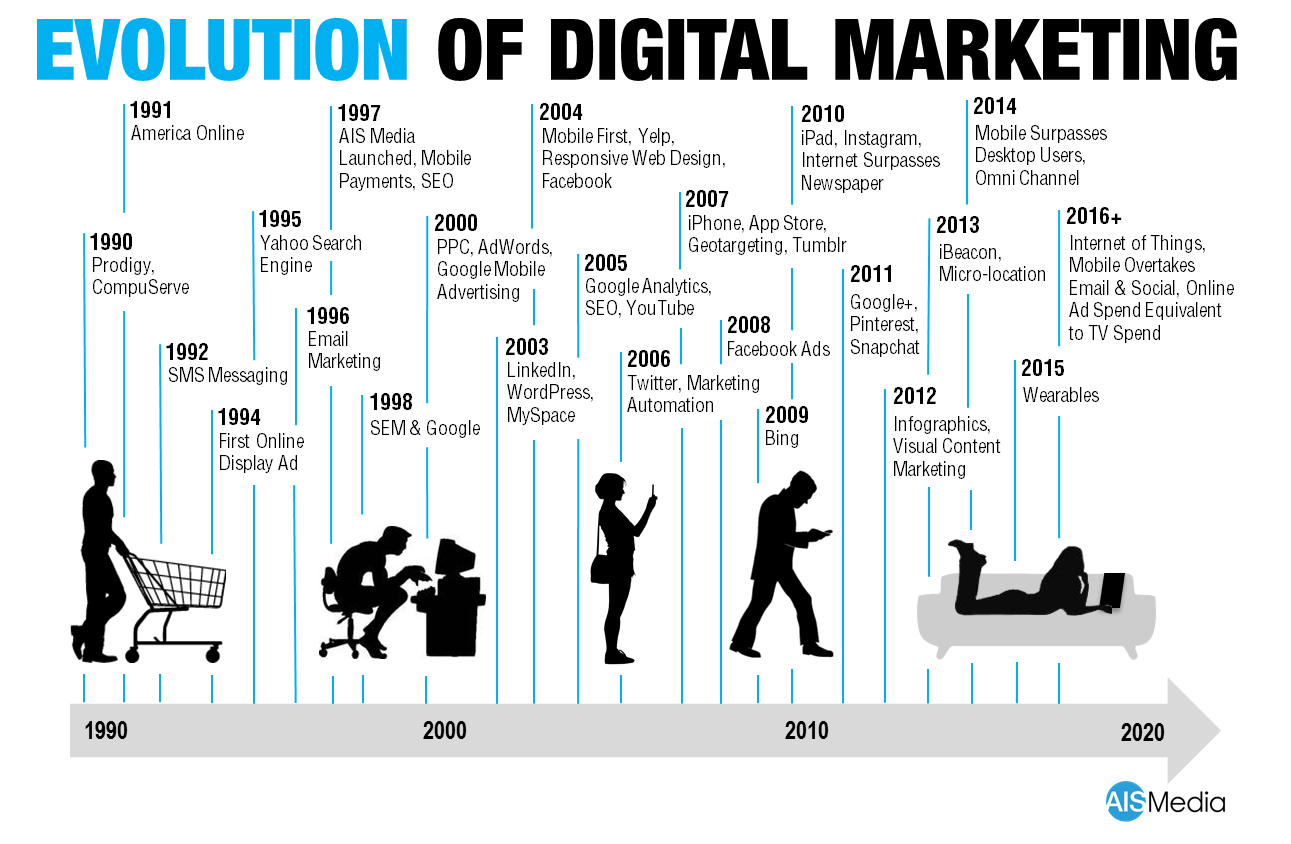
EVOLUTION OF DIGITAL MARKETING
Indeed, the term “Digital Marketing” was first coined in the 1990s when the internet was gaining popularity, and businesses began exploring the possibilities of marketing their products and services online. During this time, the internet was primarily a one-way platform known as Web 1.0, where users could access information but had limited opportunities for interaction and sharing.
The Web 1.0 platform provided businesses with the ability to establish an online presence through websites, but marketers were still skeptical about the effectiveness of digital marketing strategies. The lack of widespread internet adoption and limited interactivity posed challenges and uncertainties for marketers. They were unsure if their traditional marketing approaches would translate effectively to the digital platform.
In 1993, the first clickable banner went live, after which HotWired purchased a few banner ads for their advertising. This marked the beginning of the transition to the digital era of marketing. Because of this gradual shift, the year 1994 saw new technologies enter the digital marketplace. The very same year, Yahoo was launched.
Yahoo, originally known as “Jerry’s Guide to the World Wide Web,” was founded by Jerry Yang and David Filo in 1994. It quickly gained popularity as a web directory and search engine, receiving nearly 1 million hits within its first year. Yahoo’s success and the increasing number of internet users prompted significant changes in the digital marketing space.
In 1996, several other search engines and tools were launched, further expanding the options available to internet users. HotBot, LookSmart, and Alexa were among the notable additions to the search engine landscape during that time.
The year 1998 marked a significant milestone in the evolution of search engines and digital marketing. Google was founded by Larry Page and Sergey Brin, and it quickly gained traction for its efficient and accurate search results. Google’s algorithmic approach to search, PageRank, revolutionized the search engine.

Not wanting to be left behind, Microsoft shifted its focus from MSN and launched Live Search, later rebranded as Bing, as a direct competitor to Google and Yahoo in the search engine market. This further intensified the competition and led to advancements in search engine technologies and algorithms.
These developments in the late 1990s and early 2000s set the stage for the dominance of Google as the leading search engine and laid the foundation for the digital marketing landscape we see today. Search engine optimization (SEO), pay-per-click (PPC) advertising, and other digital marketing strategies continue to evolve as businesses strive to capture the attention of the growing online audience.

Post a comment